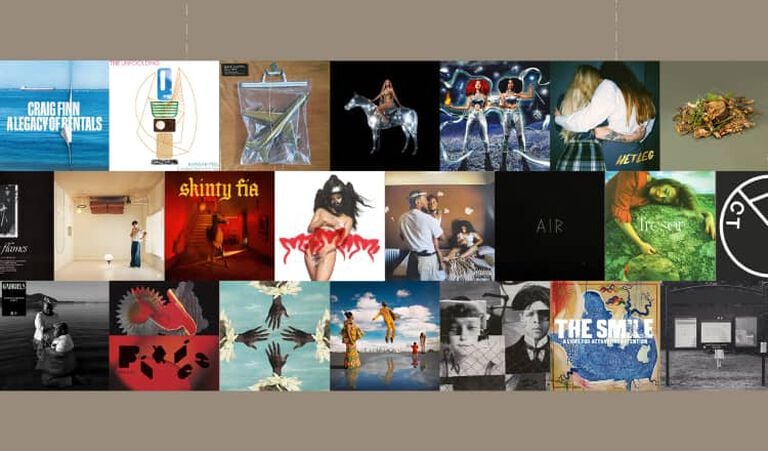In Conversation with Keith Jopling: The Art of Longevity Podcast Spotlights the Unsung Stories of the Music Industry
Industry expert and podcaster Keith Jopling provides us with his insights into the state of modern music, and why longevity is an underrated asset.
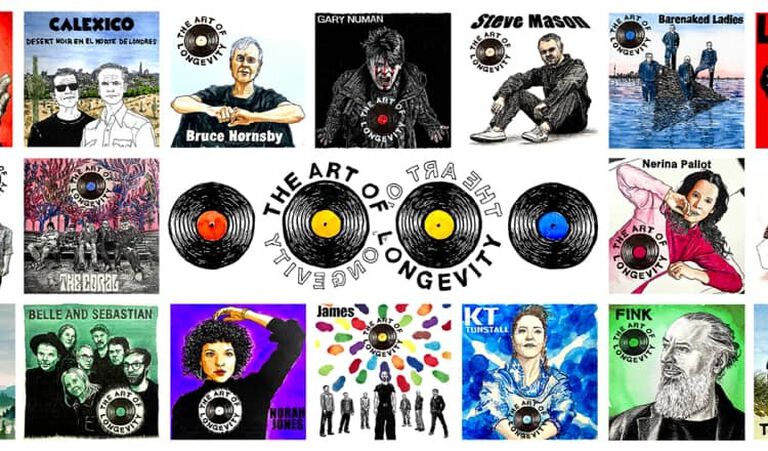
Bowers & Wilkins is a pioneer in delivering True Sound to music lovers worldwide, allowing them to hear exactly what the artist intended. In the same vein, Keith Jopling, a music industry professional with a lifelong passion for music, gives world-class artists a platform to share their career experiences and perspectives via his carefully curated podcast – The Art of Longevity.
As the proud sponsor of The Art of Longevity, Bowers & Wilkins caught up with the man behind this excellent podcast to discuss his fascination with the careers of artists, the intricacies of longevity as a musician, navigating the ups and downs of the industry – and everything in between.
Each episode of the podcast features many profound takeaways from Keith and his guests for sustaining a lasting career in the music industry. So, it's a fantastic listen for not only the fans of the artists involved, but also up-and-coming musicians looking to make their way in the ever-changing music business.
“All successful artists have followed a similar career arc with the same points plotted grimly along the way like the Stations of the Cross: struggle, success, excess, disintegration and if you’re lucky - enlightenment.”

Inspired by experience
“I reflected on the last 22 years. It’s sort of up and down. Nothing’s linear,” Keith explains about his seasoned career in the music industry. Spanning almost two decades, the industry professional has worked as a consultant and music strategist with the likes of Sony and Spotify and now provides his expertise to MIDiA as Consulting Director of the firm as well as running his own music-focussed project, The Song Sommelier. It’s his most recent venture, however, that brought Bowers & Wilkins and Keith together – his delightfully honest and entertaining podcast, The Art of Longevity.
Like many music business professionals, Keith’s dedication to the industry is driven by a lifelong passion for music. It’s this passion – and a thirst for hearing the unsung stories of his favourite artists – that saw him embark on a new journey within the space. “There’s so much skill and hard graft and luck involved – I wanted to get the individual story of career journeys from my favourite artists as well as other interesting artists.”
The Art of Longevity gives artists a platform to tell their stories from their perspective, the stories of their careers, the highs, the lows and the all-around unpredictable ride of fame and fortune. In fact, the main crux of the podcast was directly inspired by a quote from the autobiography of Brett Anderson from Suede: “All successful artists have followed a similar career arc with the same points plotted grimly along the way like the Stations of the Cross: struggle, success, excess, disintegration and if you’re lucky - enlightenment.” That really struck a chord with Keith.
Although some people’s professional arcs see them navigate seamlessly from A to B, “Very few careers are like that”, he explains – especially when it comes to musicians. It’s this notion and curiosity that solidified his interest in spotlighting the peaks and troughs of artists’ careers and, in this, unearthing some intriguing revelations.
It’s been almost three years since the podcast’s inception in 2021, and since then, Keith’s had the pleasure of speaking with not only some of his favourite artists and bands like Fink and Spoon but world-renowned ones like Tears for Fears, Norah Jones, KT Tunstall, Rickie Lee Jones, Nile Rodgers, Gary Numan, Death Cab for Cutie, Editors and more.
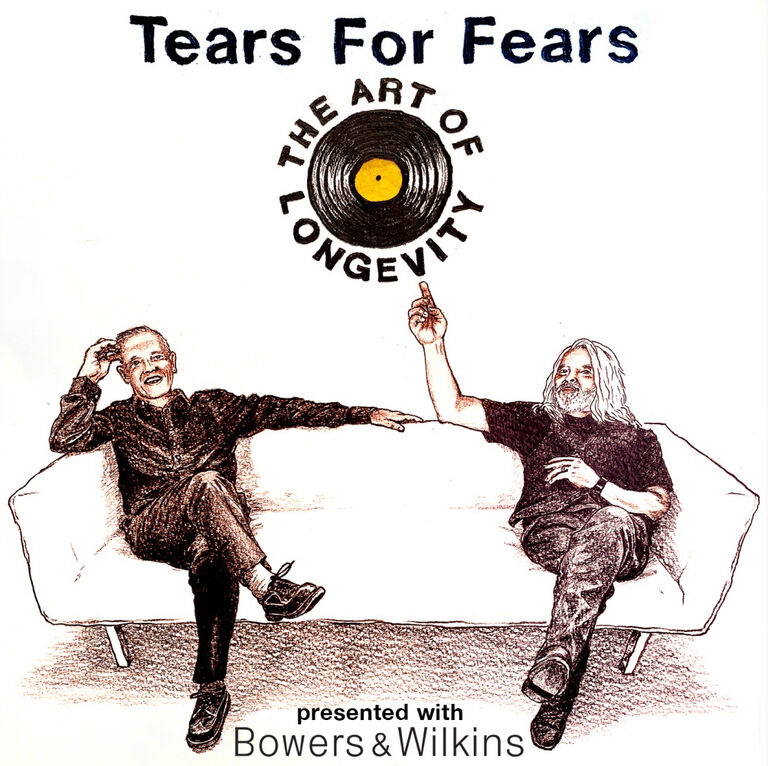
“I’ve always been fascinated by how artists and creators navigate the struggles – by the dips in the rollercoaster ride of fame and how artists navigate them.”
Longevity is key
In a fast-paced world of viral anthems and one-hit wonders, Keith wanted to reveal the bigger picture. He’s always been “fascinated by how artists and creators navigate the struggles – by the dips in the rollercoaster ride of fame and how artists navigate them,” he explains. That’s why longevity is at the heart of this body of work and provides his listeners, and fans of the artists, with a deeper narrative. After all, those with long-standing careers in the ever-changing music business have more experiences to talk from – that’s just a fact.
Listening to just a few episodes of The Art of Longevity, you’ll start to understand that there’s so much more to the story of these artists; there’s much below the surface that’s not publicly revealed. From creative block, rejection and health issues to relationship problems, addiction and more; each episode takes you on a career-spanning journey, giving more context to what you may already know.
“That’s why I wanted to get the longevity story. So many artists follow some form of Brett’s curve, and some of them go through that cycle several times over and become hardened to it”, Keith says on his fascination with the topic of longevity. The artists who have stood the test of time have conquered this, “they know they’re going to come back”. Getting knocked back as a creative is a rite of passage, but how you deal with it is the deciding factor of success.
Additionally, while working with new artists and their managers during his day-to-day professional career, Keith began to see another interesting pattern emerge. “It’s never fame and fortune” that these artists want, according to Keith. “They’re too savvy about the way the world works now. It’s just ‘I want a career, I want longevity’ – so that’s become the goal.”
“With mainstream platforms, artists aren’t going to get asked about their experience of the music business, whereas for me, that’s a key theme of the podcast.”
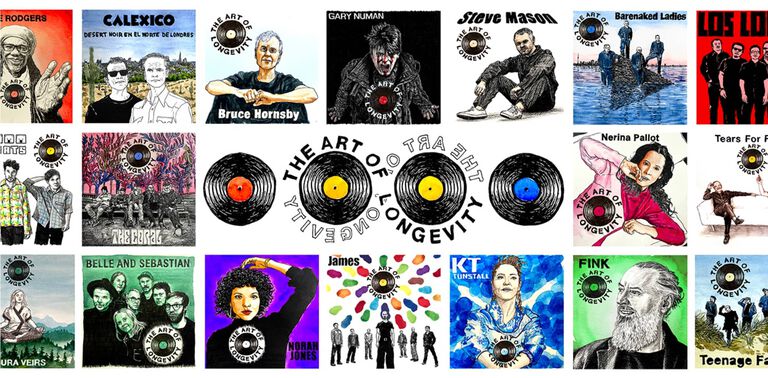
A different stage
Much of the interaction these young musicians and fans have with their musical icons comes from mainstream media outlets or social media, and it’s common knowledge that these usually centre around an agenda, be it promoting an upcoming record, a tour or a new project. This, although keeping fans in the know, doesn’t provide an honest look at what’s really going on behind the scenes. Creatives are complex people and hearing them talk about their lives from a sincere and emotional standpoint is really what many fans want.
This is where The Art of Longevity shines. The beautifully introspective conversations Keith has with the artists on the show expose the truths behind their most compelling stories and controversies. “you’re giving them a different stage – a different setting,” Keith explains. “The thing with creative people and artists, especially established ones, is you’ve got to make them comfortable. If they’re comfortable, they will tell you on reflection how they feel about things, about how things went. They’ll go into the dark moments; they’ll talk about the business aspect.”
It's undeniable that peeking behind the veil of the glamourous – or at times not so glamourous – music business is fascinating, and who better to lift the veil than those who’ve been through the thick of it? “With mainstream platforms, artists aren’t going to get asked about their experience of the music business, whereas for me, that’s a key theme of the podcast.” As much as it interests up-and-coming artists and fans to hear about the lesser-voiced happenings in the industry – it certainly seems liberating for the artists to share the experiences they’ve had – positive or negative. As Keith so rightly states, “they’re experiencing everything first hand – these artists are living and working right in the thick of it all.”
“It delights me to get beyond the entourage and have an honest conversation.”
Breaking down barriers
It’s these beautifully honest conversations that keep Keith’s growing audience returning. Like many of us, they’re interested in the lives of these world-renowned creatives, wondering how they’ve managed to navigate the industry – and learn the deeper stories from their past. “We’re beyond the point where the general public assumes that artists are these people who are always happy, who can’t believe how great their jobs are, have big houses and fly around in private jets. Of course, some still do – but it’s a lot less than was the case 20 years ago,” Keith explains. “Everybody realises that – so there’s an interest and fascination with how artists make a living.”
Keith is excellent at breaking down these barriers and bringing the artists down to earth; in his own words, “it delights me to get beyond the entourage and have an honest conversation.” And with this, it’s certainly refreshing to see these figures who’ve inspired generations of people, or serenaded us on our good and bad days, be so open about their journey. “They’re coming across first and foremost as human beings who have the same emotions and the same challenges that we all have. They’re wondering about the same things. They have the same doubts as we all have. I think it’s really important for people to see that side of them.”
As much as The Art of Longevity focuses on its musical guests, it gives brutally honest insights into how the music industry works, what it’s really like to be immersed in it and the impact it can have on creativity. It helps build an appreciation of how hard it can really be to navigate a career in the music business – and this is especially beneficial for listeners who’re trying to follow a similar path in the industry. “It’s not an easy business to be a creator, the songwriter, the performer, the musician; they’ve got the hardest job of anyone in the business for sure,” says Keith.
“They’re concerned about artists coming through now, and they realise they probably couldn’t have had success in today’s world.”

Streaming vs longevity
As the music industry has evolved to cater to its streaming-dominated landscape, Keith gives some valuable insights into how the dawn of music streaming has impacted the guests on his show: “For the artists that I’m speaking with, largely streaming’s been good. It’s been a net benefit,” he explains. “But we all know the problems of streaming; the business model doesn’t work for artists. They don’t get paid enough. The thing is, these artists have already got loyal audiences, so most of them can make money selling tickets to shows. That’s how they make money, as well as doing other projects. But streaming has benefited them because their music is always going to find new audiences through the algorithms – because that’s what streaming does.”
To further cement his findings that “the more established you are as an artist, the bigger the benefit streaming has,” Keith shares two specific yet bittersweet touchpoints he's heard around the subject from the guests on his show.
“One is that they’re concerned about artists coming through now, and they realise they probably couldn’t have had success in today’s world – they’re really humble. The other thing is bittersweet: they’re grateful they got their success before all of this happened – before streaming, back in the days when they could sell records and major labels would put them on the radio. They’re all grateful for getting in before that.”
Elaborating on the strategic shifts in the industry, Keith reiterates something he was told by the singer Alela Diane about the expectations of artists in the music business: “They expect us to be videographers and influencers – and we’re not; we're songwriters. More and more of their time is being taken up by this content creation role.” This doesn’t just apply to up-and-coming artists either. “Even for established artists, they have to do a lot of extra creation themselves. They have to make the videos, promote the videos and hope they get a viral strike on TikTok. They don’t have the time – it’s a distraction.”
“People either want you or they don’t.”
Memorable moments
Although there have been many impactful and memorable moments during the six seasons of The Art of Longevity, there are a few that Keith notes as real revelations. “When I had the interview with Neil Hannon from The Divine Comedy, that taught me something,” he says.
“I was talking to him about whether anyone has approached him to buy his catalogue and how often the phone rings. That was really interesting because he said, ‘people either want you or they don’t.’ That really hit me. We’re all in the business of selling something, selling ourselves. Pitching this, pitching that.”
In another eye-opening example, Keith elaborates on the power of ‘no’ and how reclaiming this as an artist has become a recurring theme for those who’ve established success.
“People like KT Tunstall and Fink were really into the podcast interviews – and they’ve come out with some real wisdom. Fink was saying fame is obtaining the power of ‘no’ and reversing that idea of always having to push yourself out there to get people to listen to you.” Fink went on to comment about the benefits of reclaiming this power, saying “people come to you and ask you whether you’d play here or play there. Would you do this media appearance? Finally, ‘I can say no to that because I'm working on my next big thing – I don’t need to do it.’” According to Keith, this was much the same for KT Tunstall. Following her performance of “Black Horse And The Cherry Tree” on Later... with Jools Holland, everything changed for her. She became a priority artist, resulting in people approaching her rather than the other way around when she was an emerging one.
“You need to get through the downs, and you need to keep going. Don’t try and create music for popularity; create it because it’s the art you want to create.”
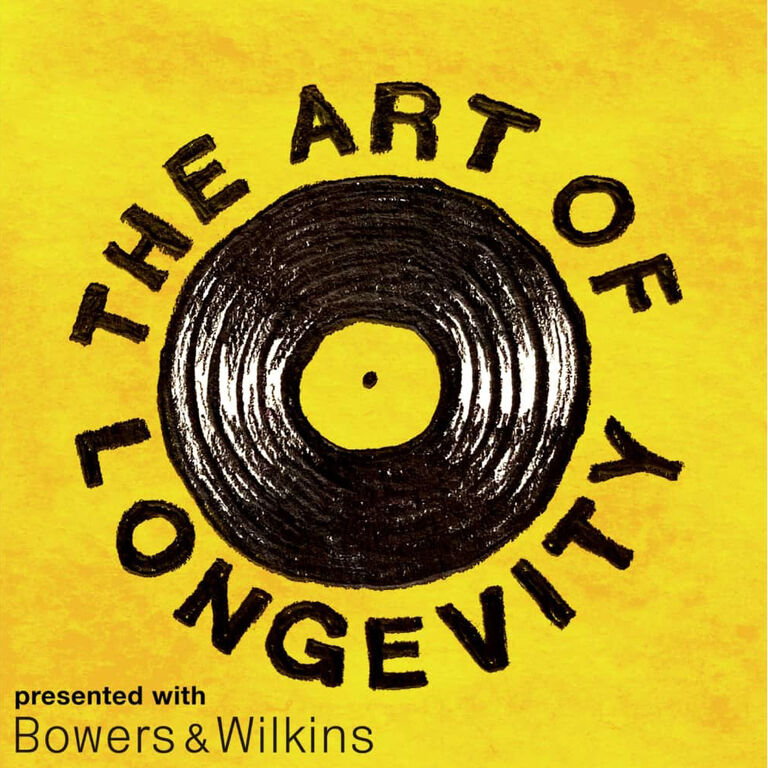
Make art, not entertainment
On the topic of revelations, there have been a few stand-out key takeaways that Keith has found during his research into the subject of longevity. One major takeaway, he found, was that it’s imperative that artists “don’t get in any way despondent about the down bits”. He goes on to explain that “those moments often turn out to be the best turning points” for them, as it’s these downs in the rollercoaster that usually result in them making their best and most memorable works.
“When I’ve written about this from the interviews I’ve done, at least 10 or 15 times when we've talked about being dropped, they’ve gone on to make their best album after that. Creatively there’s a resurgence, and often it does well commercially, which is ironic as they were usually dropped for not selling enough records.”
Taking creative risks as a musician is another important consideration when it comes to navigating the struggles of a lasting career. Keith highlights a fantastic example of this in our conversation, reminiscing about when Bill Ryder-Jones left The Coral. “It was devastating because not only was he a real creative force within the band, but they’d been together since school days,” he explains. Instead of finding a new virtuoso, the band decided to change their sound – and this was a catalyst for new-found success.
“You need to take creative risks, for sure. You need to get through the downs, and you need to keep going. Don’t try and create music for popularity; create it because it’s the art you want to create. Make art, not entertainment.”
“We want to do some live shows or even a live version of the podcast.”
The future of longevity
During Keith’s research into the subject of longevity, there have certainly been patterns that have emerged. But how exactly does Keith see his conversation around the topic evolve in the future? He gives us a peek into what we can expect, explaining that he’s keen to “grow the theme beyond just the podcast – because the podcast is built on a theme. It’s only one way of expressing it and looking into it. We want to do some live shows or even a live version of the podcast.”
In addition to his plans of expanding the project in the form of talks, website updates to house the podcast, growing the project’s accompanying socials, and recently releasing the “white papers”, which is a more stats-driven case study about the artists he’s interviewed, Keith has just shared his latest instalment of The Art of Longevity – the first episode of season seven which features Rickie Lee Jones.
For this seventh season, Keith tells us, excitingly, that he’d like to focus on the legends of the music industry. Although the featuring artists of season seven haven’t been revealed, it’s clear from the podcast’s track record that we’re in for something special.
The Art of Longevity is available for your listening pleasure across a wealth of streaming platforms, including Spotify, Apple Music, Amazon Music, and, of course, the Bowers & Wilkins Music app.
Browse some of our related articles
